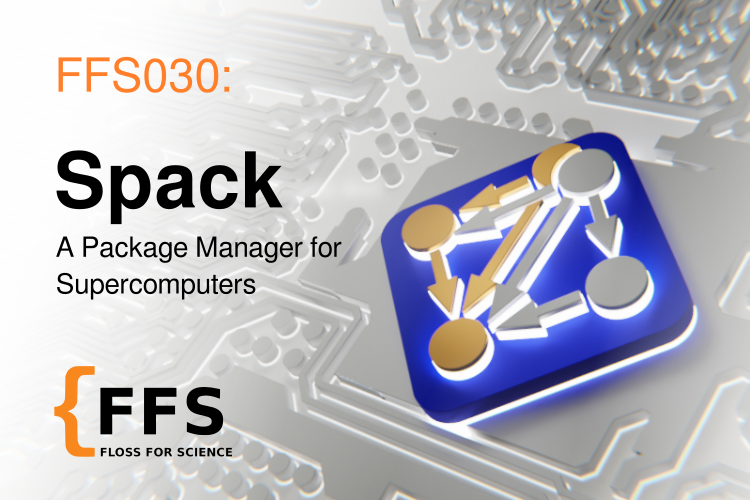
EP030 Spack: a package manager for supercomputers
Outline
In episode 30, we interviewed Todd Gamblin from the Lawrence Livermore National Laboratory about the Spack project. We discussed his current research project along with his involvement in Spack. We widely discussed the philosophy of Spack, some usage patterns, its capabilities for managing package management in HPC clusters as well as standalone computers and which operating systems it supports at the moment. Todd shared with us his opinion on the trend for containerized workloads to achieve reproducible science and why it may not be the goal we need to set. He highlighted for us the similarities and differences between EasyBuild and Spack as well as the origin of those differences. We finished the interview with our usual quick questions.
About Spack:
Spack is a package/dependency manager for scientific computing, with a
rapidly growing open source community. It aims to address many of the
complexities of native, multi-language, cross-platform dependency
management. With over 500 contributors from academia, industry, and
government laboratories, Spack has a wide range of use cases, from
small-scale development on laptops and clusters, to software release
management for the U.S. Exascale Computing Project (ECP), to software
deployment at large supercomputer facilities. Recently, Spack has added
features for devops and software development workflows, including
reproducible deployment. Spack virtual environments can be versioned and
reproduced with abstract spack.yaml files or concrete (exact)
spack.lock files. New releases of Spack include direct support for
creating containers, parallel/distributed builds, and Gitlab CI pipelines
for building environments.
About Todd Gamblin:
Todd Gamblin is a Computer Scientist in the Advanced Technology Office in Livermore Computing at Lawrence Livermore National Laboratory. His research focuses on scalable tools for measuring, analyzing, and visualizing parallel performance data. In addition to his research, Todd leads LLNL’s DevRAMP (Reproducibility, Analysis, Monitoring, and Performance) team and the Software Packaging Technologies project in the U.S. Exascale Computing Project. He also created Spack.
Links
Listen to this episode here or add our rss feed to your favourite podcast application.









